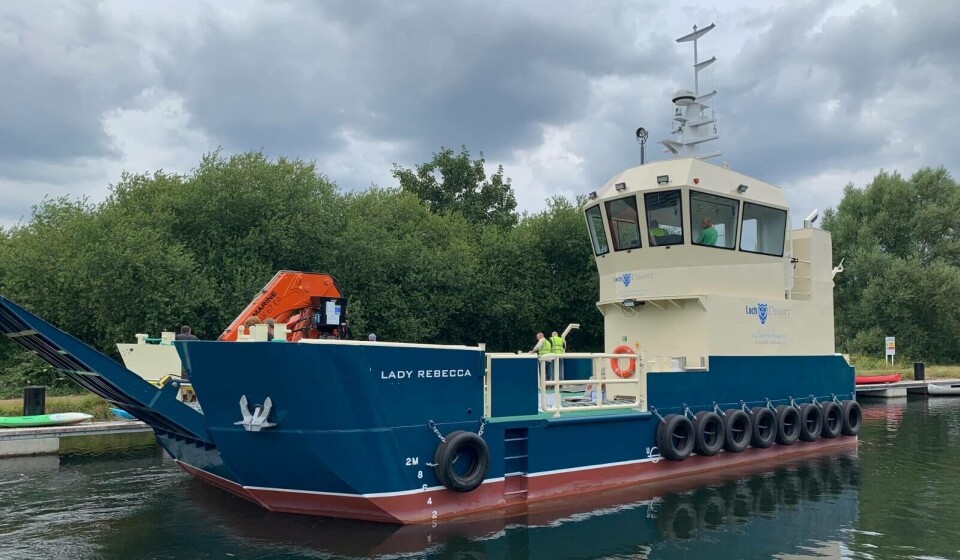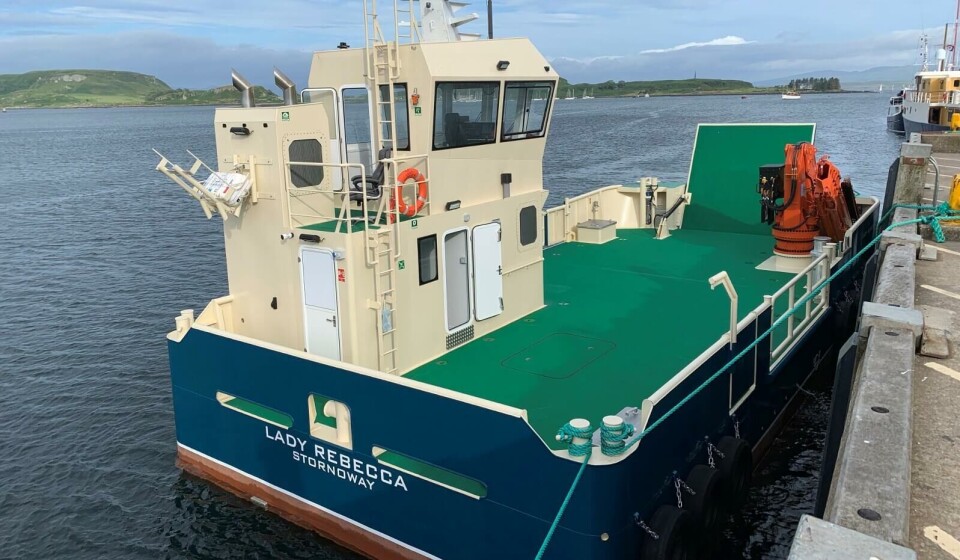
Damen bets on Scottish aquaculture expansion with three new workboats
Dutch boat builder Damen has revealed that it plans to have three workboats built in England to have “on stock” for the Scottish fish farming market, even though it doesn’t yet have any customers for the vessels.
Mike Besijn, the company’s sales manager for north, west and south Europe, said the firm was confident that it would be able to sell the landing craft-style boats in a growth market.
The 1608-model landing utility vessels will be built by Exeter-based Coastal Workboats Scotland, which recently completed the first 1608 landing craft for Sutherland and Hebrides salmon farmer Loch Duart.

Three boats on stock
Coastal Workboats Scotland is owned by Brian and Julie Pogson, who have previously supplied workboats to Loch Duart and Scottish trout farmer Kames through a sister company, Exeter Fabrication Ltd. Brian Pogson also owns Exeter Maritime Services, which builds catamaran river ferries and workboats.
“We are planning to build three more on stock with Coastal Workboats Scotland,” said Besijn.
“This one [for Loch Duart] was just the first to see how it would go.
“We sold the design of the first 1608s, which Coastal Workboats Scotland built by themselves.
“During the build we visited frequently to see if we were happy with the quality and expertise, and we think it’s fine, very well done.”

Confidence in Scotland
The first 1608, Loch Duart’s Lady Rebecca, is 16 metres long.
“We have designed it so it can be a 19-metre or a 22-metre, or even up to a 25-metre, but realism tells me that it will be between 16 metres and 22 metres for the smaller landing craft,” said Besijn.
“We have a lot of confidence in the Scottish aquaculture market. It is a real growth market.”
Damen’s Baldo Messina, who designed the 1608, said the vessel has a crane on one side to compensate the wheelhouse on the other. There is no need to ballast the boat when using the crane, although there is a ballast tank.
Smaller boats still needed
Besijn is not worried that the intention of some Scottish salmon farmers to move operations offshore would leave Damen with unwanted workboats.
“We still believe that in the short-term a lot of these smaller boats will be needed, and moving further offshore will be in the mid-term, not the short-term,” said Besijn.
Looking ahead, Damen has also designed a vessel for those offshore areas.
The 2613-model aquaculture support vessel is 26 metres long, and is being offered in Norway and the UK.
The size is matched to British rules for the 200 gross tonne workboat code.























































